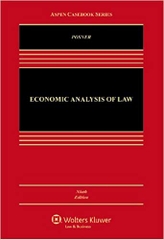-
-
-
Tổng tiền thanh toán:
-
-
Thông tin
-
Tìm sách theo yêu cầu
It’s time to rethink the way we think about China.
In this thought-provoking book, noted China experts from Harvard Business School and the Wharton School assert that while China has experienced remarkable economic growth in recent decades (nearly 10 percent for more than thirty years), it now faces major challenges—tests that could shift the country’s political and economic trajectory.
A lack of accountability, transparency, and ease of operating in China—combined with growing evidence of high-level corruption—has made domestic and foreign businesspeople increasingly wary of the “China model.” These issues have deep roots in Chinese history and the country’s political system.
Regina M. Abrami of the Wharton School and William C. Kirby and F. Warren McFarlan of Harvard Business School contend that the country’s dynamic private sector could be a source of sustainable growth, but it is constrained by political favoritism toward state-owned corporations. Disruptive innovation, research, and development are limited by concerns about intellectual property protection. Most significant of all is the question of China’s political future: does a system that has overseen dramatic transformations in recent years now have the capacity to transform itself?
Based on a new and popular course taught by the authors at Harvard Business School, this book draws on more than thirty Harvard Business School case studies on Chinese and foreign companies doing business in the region, including Sealed Air, China Merchants Bank, China Mobile, Wanxiang Group, Microsoft, UFIDA, and others.
Can China Lead? asserts that China is at an inflection point that cannot be ignored. An understanding of the forces that continue to shape its business landscape is crucial to establishing—and maintaining—a successful enterprise in China.
- Link: http://www.amazon.com/Can-China-Lead-Reaching-Limits/dp/1422144151
In this thought-provoking book, noted China experts from Harvard Business School and the Wharton School assert that while China has experienced remarkable economic growth in recent decades (nearly 10 percent for more than thirty years), it now faces major challenges—tests that could shift the country’s political and economic trajectory.
A lack of accountability, transparency, and ease of operating in China—combined with growing evidence of high-level corruption—has made domestic and foreign businesspeople increasingly wary of the “China model.” These issues have deep roots in Chinese history and the country’s political system.
Regina M. Abrami of the Wharton School and William C. Kirby and F. Warren McFarlan of Harvard Business School contend that the country’s dynamic private sector could be a source of sustainable growth, but it is constrained by political favoritism toward state-owned corporations. Disruptive innovation, research, and development are limited by concerns about intellectual property protection. Most significant of all is the question of China’s political future: does a system that has overseen dramatic transformations in recent years now have the capacity to transform itself?
Based on a new and popular course taught by the authors at Harvard Business School, this book draws on more than thirty Harvard Business School case studies on Chinese and foreign companies doing business in the region, including Sealed Air, China Merchants Bank, China Mobile, Wanxiang Group, Microsoft, UFIDA, and others.
Can China Lead? asserts that China is at an inflection point that cannot be ignored. An understanding of the forces that continue to shape its business landscape is crucial to establishing—and maintaining—a successful enterprise in China.
Product Details
Hardcover: 288 pages
- Publisher: Harvard Business Review Press (February 18, 2014)
- Language: English
- ISBN-10: 1422144151
- ISBN-13: 978-1422144152
- Product Dimensions: 9.3 x 6.1 x 1.1 inches
- Shipping Weight: 1 pounds (View shipping rates and policies)
- Average Customer Review: 3.2 out of 5 stars See all reviews (5 customer reviews)
- Amazon Best Sellers Rank: #187,788 in Books (See Top 100 in Books)
Editorial Reviews
Review
ADVANCE PRAISE for Can China Lead?:
William V. Hickey, retired Chairman and Chief Executive Officer, Sealed Air Corporation—
“Can China Lead? is a thoughtful and well-written perspective on the development of modern China, its emergence as an economic power, and its future outlook. This is a must-read for anyone doing business in China today and anyone interested in the leadership challenges that China will face going forward.”
Rodney Chase, former Deputy Group Chief Executive and Managing Director, BP plc—
“These Harvard and Wharton luminaries have written a challenging and disturbing assessment of modern-day China while brilliantly illuminating the country’s traumatic twentieth-century journey. While the authors express real doubts about China’s readiness to embrace a world leadership role anytime soon, this book will help all of us understand China just a little better.”
Karen Mills, former Administrator, US Small Business Administration—
“Entrepreneurship may be America’s ‘secret sauce,’ but it’s an essential part of China’s heritage as well. From a deep historical understanding, Can China Lead? asks what will happen when the Chinese and American entrepreneurial economies face off in a global marketplace.”
George Yeo, former Minister of Foreign Affairs, Singapore—
“The authors doubt that China can lead the world, admitting that China may not have any such ambition in the first place. Analyzing the country’s deep contradictions, this book will teach you how business is done in China—and it does so brilliantly.”
Tom Lee, Hughes M. Blake Professor of Management, Foster School of Business, University of Washington; former President, Academy of Management—
“One of the best books on China that I’ve read in a very long time.”
William V. Hickey, retired Chairman and Chief Executive Officer, Sealed Air Corporation—
“Can China Lead? is a thoughtful and well-written perspective on the development of modern China, its emergence as an economic power, and its future outlook. This is a must-read for anyone doing business in China today and anyone interested in the leadership challenges that China will face going forward.”
Rodney Chase, former Deputy Group Chief Executive and Managing Director, BP plc—
“These Harvard and Wharton luminaries have written a challenging and disturbing assessment of modern-day China while brilliantly illuminating the country’s traumatic twentieth-century journey. While the authors express real doubts about China’s readiness to embrace a world leadership role anytime soon, this book will help all of us understand China just a little better.”
Karen Mills, former Administrator, US Small Business Administration—
“Entrepreneurship may be America’s ‘secret sauce,’ but it’s an essential part of China’s heritage as well. From a deep historical understanding, Can China Lead? asks what will happen when the Chinese and American entrepreneurial economies face off in a global marketplace.”
George Yeo, former Minister of Foreign Affairs, Singapore—
“The authors doubt that China can lead the world, admitting that China may not have any such ambition in the first place. Analyzing the country’s deep contradictions, this book will teach you how business is done in China—and it does so brilliantly.”
Tom Lee, Hughes M. Blake Professor of Management, Foster School of Business, University of Washington; former President, Academy of Management—
“One of the best books on China that I’ve read in a very long time.”
About the Author
Regina M. Abrami is a Senior Fellow at the Wharton School (University of Pennsylvania), Director of the Global Program at the Lauder Institute of Management and International Studies, and Senior Lecturer in the Department of Political Science. Prior to this, she was a member of the Harvard Business School faculty for eleven years, and chair of its inaugural international immersion program.
William C. Kirby is the Spangler Family Professor of Business Administration at Harvard Business School and the T. M. Chang Professor of China Studies at Harvard University. He is Chairman of the Harvard China Fund. He has served as Director of the Fairbank Center for Chinese Studies and Dean of the Faculty of Arts and Sciences at Harvard. He is an honorary professor at Peking University, Nanjing University, Chongqing University, Zhejiang University, East China Normal University, Fudan University, the Shanghai Academy of Social Sciences, and National Chengchi University.
F. Warren McFarlan is a Baker Foundation Professor at Harvard Business School, as well as the Albert H. Gordon Professor of Business Administration, Emeritus. He is concurrently a guest professor at Tsinghua University’s School of Economics and Management and codirector of the school’s China Business Case Center.
William C. Kirby is the Spangler Family Professor of Business Administration at Harvard Business School and the T. M. Chang Professor of China Studies at Harvard University. He is Chairman of the Harvard China Fund. He has served as Director of the Fairbank Center for Chinese Studies and Dean of the Faculty of Arts and Sciences at Harvard. He is an honorary professor at Peking University, Nanjing University, Chongqing University, Zhejiang University, East China Normal University, Fudan University, the Shanghai Academy of Social Sciences, and National Chengchi University.
F. Warren McFarlan is a Baker Foundation Professor at Harvard Business School, as well as the Albert H. Gordon Professor of Business Administration, Emeritus. He is concurrently a guest professor at Tsinghua University’s School of Economics and Management and codirector of the school’s China Business Case Center.
Most Helpful Customer Reviews
1 of 1 people found the following review helpfulBy dan epstein on March 29, 2014
Format: Hardcover Verified Purchase
Comment Was this review helpful to you? YesNoFascinating insights, shedding new light on modern Chinese history as well as the challenges of sustaining China's remarkable economic growth. Each chapter indicates on a macro level structural constraints to market development and economic growth as well as the practical ramifications for businesses - non-state owned and foreign-owned - looking for ways to navigate and thrice in this environment. Extremely readable and accessible.
By Kelly McCarthy Barner on May 29, 2014
Format: Hardcover
Can China Lead?, by Regina M. Abrami, William Kirby, and F. Warren McFarlan, asks a question that can not be definitively answered but is well worth asking. The authors seamlessly combine their knowledge of China’s history, people, and politics to advise companies looking to engage in commercial interactions with one the world’s second largest economy (As ranked by GDP by the United Nations, 2012). As the authors state in their Introduction, “Chinese businesses compete globally, now going head-to-head with North American and European corporations in telecommunications, heavy machinery, and renewable forms of energy.” (p. x)
Procurement is spending an increasing amount of time analyzing the tradeoffs between building global supply chains and reshoring (or at least nearshoring) materials and services that might previously have come from China. This book is an accessible introduction to the highly contextual nature of business in China. The primary tensions, which sometimes lead to misunderstandings by businesses in other countries, are between the official government and the dominant Chinese Communist Party (CCP). The CCP has leaders representing their interests in every major corporate organization, leading to misgivings about intellectual property rights and agreements.
Companies looking to do business in China would be wise to understand what holds value to Chinese firms, including manufacturing or design processes that allow them to build their own knowledge and skills. “For example, an agreement with Boeing to buy a large number of Dreamliners for Chinese airlines was directly linked to the decision by Boeing to have the rudders built in China. Had the Chinese not gained access to that technology, the planes would not have been ordered.” (p. 92). Clearly articulating and calculating the impact of such tradeoffs becomes a critical success factor for companies looking to meet the demand of Chinese customers.
The authors open the book by making the strong case that business in China can not be understood separate from it’s history, one that is less cohesive than many of us think. “China is instead a series of interlocking regional economies, with populations the size of European nations, or larger.” (p. 10) The complexities of dealing with multiple layers of officials representing varying levels of local government or the Party should not be taken lightly.
For all of the seeming severity and cautionary information, many of the modern news stories incorporated throughout clearly illustrate the author’s points while almost entertaining in a way reminiscent of pop-culture tabloid falls from grace. Particularly notable are Mao Zedong’s widow, Jiang Qing, who upon finding herself on trial for causing disharmony (etc.) during the Cultural Revolution of 1966-1976 was referred to as ‘the criminal’ by her court appointed lawyer, and Bo Xilai, a once influential Party chief who was accused of corruption, covering up murder, and “improper” relations with a number of women. (p. 1)
The authors are clearly skeptical of China’s ability to lead without significant changes to their political system. “If anything, the political system created by the CCP stands in the way of the substantive changes needed to transform this country of 1.3 billion people into a place with sustainable foundations for economic growth and social well being.” (p. i) Although the future of China’s economy – or more accurately represented, economies – is an open question, Can China Lead? is a compelling and worthwhile read for anyone transacting with or sourcing from companies in China.
Procurement is spending an increasing amount of time analyzing the tradeoffs between building global supply chains and reshoring (or at least nearshoring) materials and services that might previously have come from China. This book is an accessible introduction to the highly contextual nature of business in China. The primary tensions, which sometimes lead to misunderstandings by businesses in other countries, are between the official government and the dominant Chinese Communist Party (CCP). The CCP has leaders representing their interests in every major corporate organization, leading to misgivings about intellectual property rights and agreements.
Companies looking to do business in China would be wise to understand what holds value to Chinese firms, including manufacturing or design processes that allow them to build their own knowledge and skills. “For example, an agreement with Boeing to buy a large number of Dreamliners for Chinese airlines was directly linked to the decision by Boeing to have the rudders built in China. Had the Chinese not gained access to that technology, the planes would not have been ordered.” (p. 92). Clearly articulating and calculating the impact of such tradeoffs becomes a critical success factor for companies looking to meet the demand of Chinese customers.
The authors open the book by making the strong case that business in China can not be understood separate from it’s history, one that is less cohesive than many of us think. “China is instead a series of interlocking regional economies, with populations the size of European nations, or larger.” (p. 10) The complexities of dealing with multiple layers of officials representing varying levels of local government or the Party should not be taken lightly.
For all of the seeming severity and cautionary information, many of the modern news stories incorporated throughout clearly illustrate the author’s points while almost entertaining in a way reminiscent of pop-culture tabloid falls from grace. Particularly notable are Mao Zedong’s widow, Jiang Qing, who upon finding herself on trial for causing disharmony (etc.) during the Cultural Revolution of 1966-1976 was referred to as ‘the criminal’ by her court appointed lawyer, and Bo Xilai, a once influential Party chief who was accused of corruption, covering up murder, and “improper” relations with a number of women. (p. 1)
The authors are clearly skeptical of China’s ability to lead without significant changes to their political system. “If anything, the political system created by the CCP stands in the way of the substantive changes needed to transform this country of 1.3 billion people into a place with sustainable foundations for economic growth and social well being.” (p. i) Although the future of China’s economy – or more accurately represented, economies – is an open question, Can China Lead? is a compelling and worthwhile read for anyone transacting with or sourcing from companies in China.
XEM CHI TIẾT TẠI AMAZON.COM
- Thông tin chi tiết
- Mục lục
- Đánh giá & bình luận của người mua
- Những cuốn sách cùng chủ đề hoặc có liên quan
Tại web chỉ có một phần nhỏ các đầu sách đang có nên nếu cần tìm sách gì các bạn có thể liên hệ trực tiếp với Thư viện qua Mail, Zalo, Fanpage nhé
Đăng ký nhận tin qua email
Hãy đăng ký ngay hôm nay để nhận được những tin tức cập nhật mới nhất về sản phẩm và các chương trình giảm giá, khuyến mại của chúng tôi.












